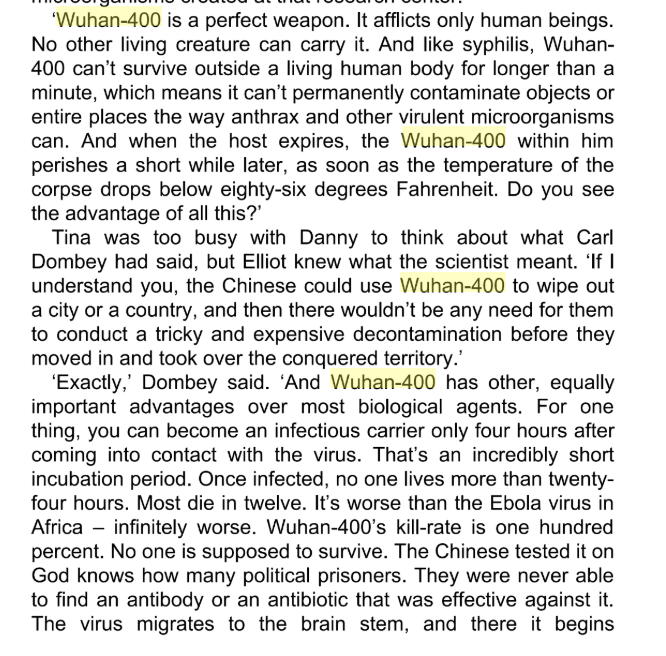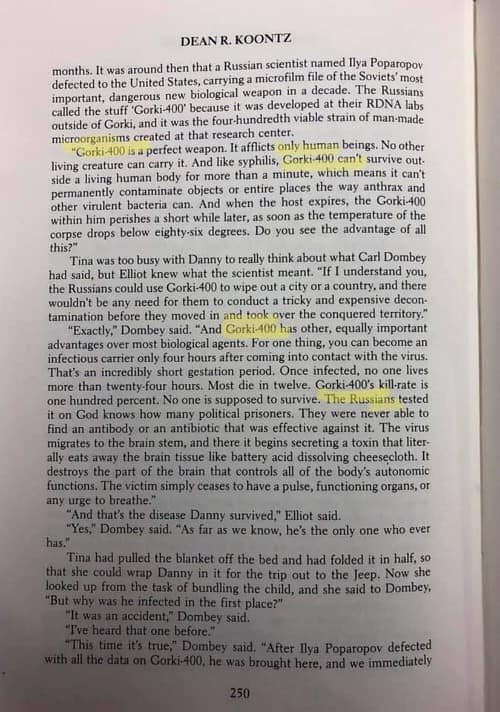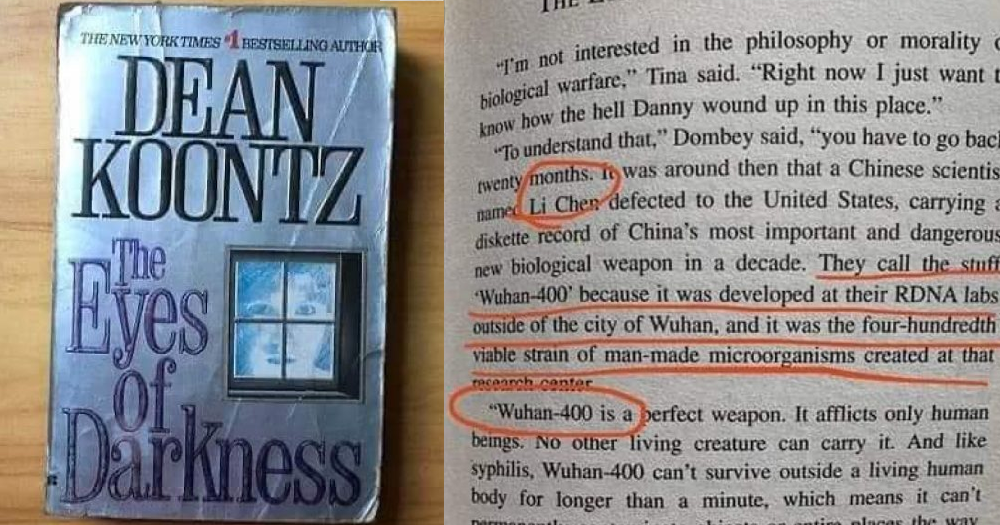Sometime, life and fiction can have some strange parallels.
When Donald Trump was first elected as U.S. President, screengrabs of a Simpsons episode seemingly predicting his presidency were widely circulated online.
And now, given that the world is seized by the novel coronavirus, yet another strange parallel has emerged.
This time, with a thriller fiction novel by Dean Koontz.
"Wuhan-400" bioweapon
Some photos of Koontz's Eyes of Darkness have been circulating on Facebook because it mentions a virus called "Wuhan-400".
Here's a photo of a page that mentions it:
 Sebastian Hayzel Matutino/FB
Sebastian Hayzel Matutino/FB
 Sebastian Hayzel Matutino/FB
Sebastian Hayzel Matutino/FB
A quick search in Google Books also yields a portion of the same page:

The book is about a mother's search for her son that takes her to a military facility where he is held after being accidentally contaminated by micro-organisms from a Wuhan lab.
In the book, a Chinese scientist defected to the U.S. with a diskette containing records of Wuhan-400.
Wuhan-400 is said to afflict only human beings, and could be used to "wipe out a city of a country".
The virus is described to be a bioweapon developed in a lab just outside of the city of Wuhan -- incidentally, the Wuhan Institute of Virology is a real laboratory in Wuhan that exists just outside Wuhan city.
Unlike the novel coronavirus, Wuhan-400 has a 100 per cent fatality rate and a remarkably short incubation period of four hours (Covid-19, however has a fatality rate of around 0.2 per cent outside of the Hubei province and an incubation period of two to 14 days).
Previously Gorki-400?
The book was first published in 1981.
However, it appears that its earlier versions did not mention "Wuhan-400".
Instead, earlier versions of the book that called the virus "Gorki-400" instead, with the bioweapon being developed by Russian, and not Chinese, scientists.
 Raja Murugaiah/FB
Raja Murugaiah/FB
It is unclear when exactly this change took place, but it has been suggested that it was revised in the 1990s.
Coincidences like these not uncommon
Such parallels between fact and fiction can be quite creepy, but such "predictions" aren't actually that uncommon.
Hong Kong crime author Chan Ho-kei told South China Morning Post that "you can spot prophecies for almost all events".
Basically, if you make enough predictions, there are some that are bound to come to pass and have some kind of truth in it.
And given the wealth of fictitious stories out there, it is perhaps unsurprising that some stories end up reflecting some kind of "prediction" of future realities.
Chan added, “The probability is low, but not impossible.”
Top photo via Sebastian Hayzel Matutino/FB.
If you like what you read, follow us on Facebook, Instagram, Twitter and Telegram to get the latest updates.
